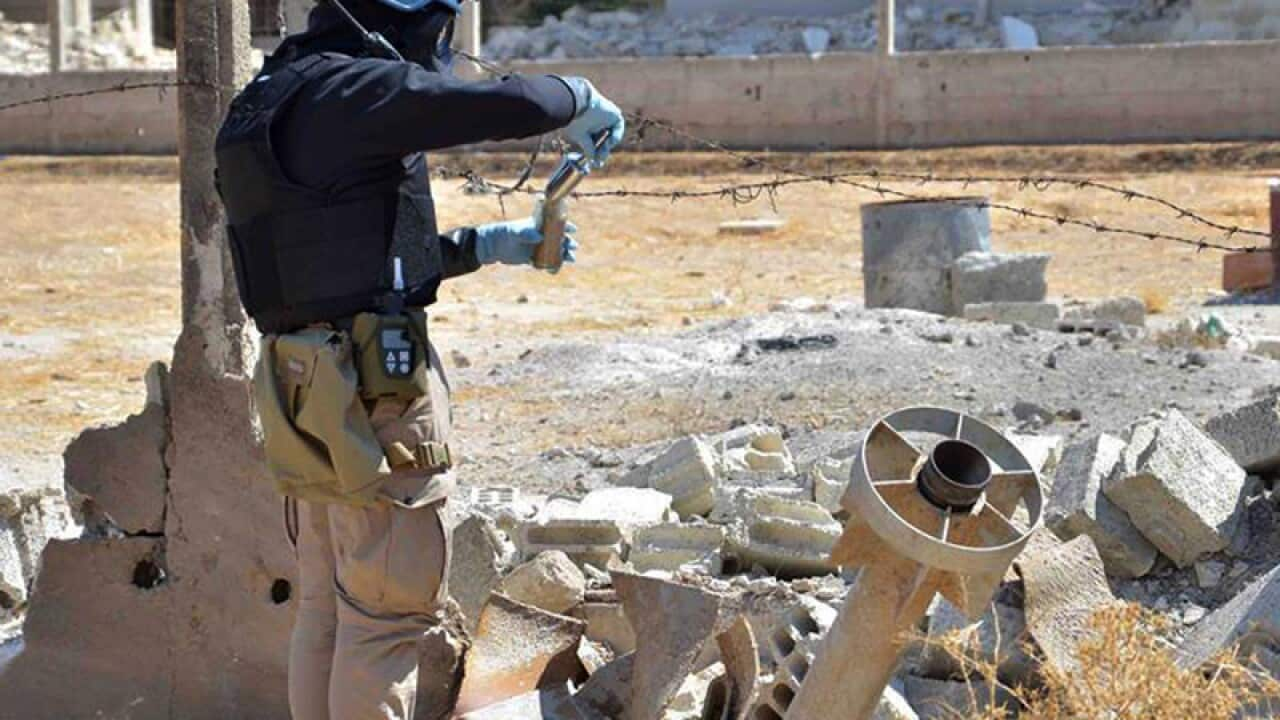A resolution ordering the elimination of Syria's chemical arms is "a disgrace for the United Nations", opposition figures say, arguing it is making leader Bashar al-Assad "legitimate" again.
"This agreement is a disgrace for the United Nations, it's scandalous," Qassem Saadeddine, a former colonel in the Syrian army who defected in 2012, told AFP on a trip to the French capital.
"The international community has grabbed on to chemical arms and forgotten the 100,000 victims of the conflict," said Saadeddine, who represents the military command of the rebel Free Syrian Army (FSA) inside the war-torn country.
His comments on Monday came ahead of the planned arrival of a 20-strong disarmament team in Damascus to begin ridding Syria of chemical weapons - one of the largest and most dangerous operations of its kind.
They are implementing a UN resolution that was passed on Friday after weeks of intense diplomatic activity following the August 21 poison gas attack in Damascus suburbs, which Washington believes killed more than 1400 people.
"Bashar al-Assad has become respectable, legitimate again," said Yahia Nanah, head of the provincial council of Aleppo in northern Syria, which aims to organise a semblance of normal civilian life in this violence-ridden area.
"All these massacres and it comes to this? It's as if the Syrian revolution happened over a chemical arms issue, when it was actually launched to create a state ruled by law in Syria."
Both men are due to take part in a debate on Syria on Tuesday organised by a Socialist MP at the lower house National Assembly.
Assad on Sunday told Italy's Rai News 24 his regime would comply with the accord.
"This regime lies and will save time. What we ask of France is to give us real support," Saadeddine said.
Asked about the situation of the rebels on the ground, he said the FSA still had "overall control of the situation.
"But the more the situation drags on, the more we wait for weapons that don't come, the more it will become intolerable."
On the ground, the rebellion is increasingly fragmented and extremists are gaining ground.
Last week, 13 rebel factions said they no longer recognised the Syrian National Coalition - the main exiled political opposition group - to which the FSA is linked.
"If these groups have become independent, it's probably because they found better sources of finance," Saadeddine said.
Meanwhile, in Damascus, Information Minister Omran al-Zohbi said on Tuesday Assad will remain in office, and has the right to decide to run for re-election next year.
"Syria is staying put: the state, the nation, the people and the president. This is the Syrians' choice," Zohbi told journalists.
"All the people call for President Bashar al-Assad to be president of this state, whatever the opposition, the Americans and the traitors say," he added.
Conflict broke out in Syria 30 months ago after Assad's regime launched a crackdown on Arab Spring-inspired protests demanding political change.
The regime has consistently blamed a foreign-backed "terrorist" plot for the violence that has racked the country ever since.
Zohbi said it is "the president's right to take a decision" on whether he will run for a new term in mid-2014, when his mandate is set to expire.
In Tuesday's speech, Zohbi said the opposition "does not have the courage to go to the polls", and that "had it had the courage, we would not have reached this point".
More than 110,000 people have been killed in Syria's war, according to the Syrian Observatory for Human Rights, and millions more have been forced to flee their homes.









